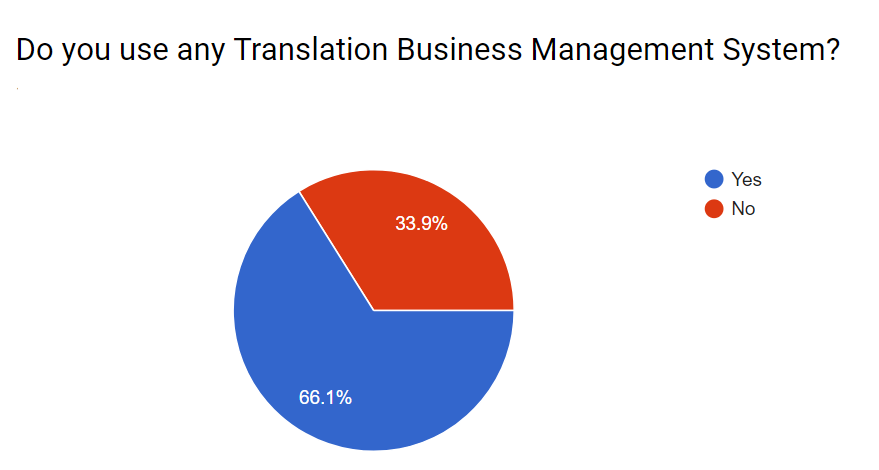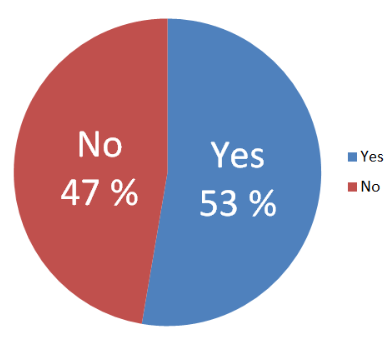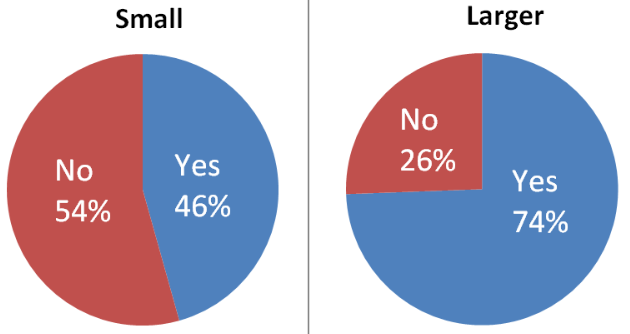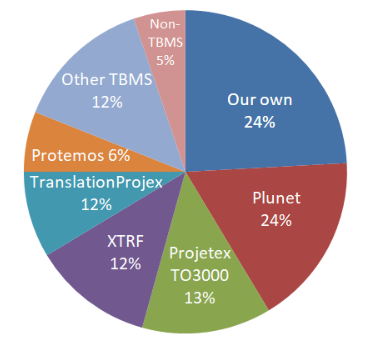
As is the case in any company, the operation of a translation agency involves a whole bunch of routine processes that need to be properly organized in order to ensure coordination between employees and the company’s development. These processes include managing the database of customers and vendors, coordinating the work of translators, checking project profitability and scrutinizing payroll calculations, and — first and foremost — monitoring the general state of affairs and planning the future of your company.
We have conducted research into the management programs and systems applied in various translation agencies, and we think you’ll find the results below somewhat interesting.
* * *
By the time this article was completed, 110 translation agencies from various countries had answered our questions., which may not seem like all that much, but we’ll leave it to you to judge the representativity of the sampling. In any case, it offers a look at the bigger picture.
What is a TMS?
Many are confused by the term TMS (Translation Management System) as it can refer to quite different systems. Some think a TMS facilitates work distribution between various translator groups, others think it is used for web integration and content translation, and yet others for order management and financial accounting.
Our research was about so called TBMS (Translation Business Management Systems). TMS of the subvariety do not have CAT tool functions or provide automated translation options: they are designed to manage the translation process, not produce the translation itself. They are often integrated with other systems.
Demand for translation business management systems
Two thirds of the companies surveyed confirmed that they use a translation business management system.

However, thorough analysis proved that many respondents simply failed to understand the question because of the uncertainty surrounding the term TMS, with many thinking it referred to programs such as Trados, SmartCAT, MemSource, MemoQ, Grammarly and even "manual translation". With such answers excluded, the situations is as follows:

In other words, only half of the agencies surveyed use business management systems. This number among the agencies not included in the poll is allegedly smaller.
The bigger the company, the higher the possibility it uses some kind of TBMS (this is natural).

Thus far, if no special business coordination tool is used within most small companies (with teams of up to five managers), this value dramatically decreases among bigger companies (up to 26 %). This is explainable by the fact that the bigger the company is, the more difficult 'manual' management and keeping track of all details appears. Moreover, companies that do not apply modern business management systems find growth and development more difficult: as companies evolve, routine tasks take up even more of their managers’ time, preventing them from proper business development and often slowing down growth rates.

The three main reasons turned out to be price, lack of understanding of system features and difficulty finding an appropriate system. Every third company mentioned at least one of the aforementioned issues.
Even fewer companies mentioned that they did not have the time to learn how to use such systems (12 %) or that they found them to be essentially unnecessary (6 %). The common trait of these companies is their small size. In other words, they have either not grown big enough to have to deal with the difficulties of managing larger teams or, the opposite, they have grown to such an extent that their management has no more time to improve the work processes inside the agency: they spend all their time on routine affairs.
Paradoxically, the basic purpose of a TBMS is precisely to save both managers’ and employees' time. Sometimes management prefer to stick to the old way of doing things instead of seeking out a solution that will help them save time in the future.
It is worth noting that half of the companies that do not use translation business management systems realize their benefits and consider integrating them into their work processes in the future.
What TMS are used
Preferences among the companies that confirmed using business management systems were as follows:

Literally every fourth translation agency uses its own system. The basic reason for this is that their management were simply unable to find any system fully satisfying their needs on the market and had to create their own.
The main benefit of this approach is the opportunity to fully adapt the system to one's needs. On the other hand, the main drawback is its value: sometimes the cost of the IT work involved is dramatically higher than any ready-to-go solution, with actual expenses often turning out to be greater than expected. Moreover, a properly designed and commissioned system requires regular support and updates in order to ensure that it does not become obsolete a few years down the road — this also requires further time and money.
Such solutions are only available for companies with profits that are sufficient to employ IT specialists who can continuously work on the system. As for smaller companies, they are usually only able to develop greenfield applications with basic features, which is why 75% of companies prefer more a more economic option — purchasing a ready-to-go project management system.
Most companies use systems like Plunet, Projetex and XTRF. These three solutions, which are more than 10 years old, have managed to develop a significant user-base. TranslationProjex and Protemos are relatively new but are becoming more and more popular. The market is fast-moving, and the share ratio can change drastically in just a few years.
12 % of respondents stated that they use other translation agency management systems, but their shares are small (at least among those involved in the poll). Another small group (about 5 %) chose to adapt applications that were not initially designed for translation businesses.
Satisfaction with systems
Every company has its own unique corporate culture, work methods and information access provision policy, which means there are no ‘one-size-fits-all’ solutions.
We asked the respondents to rate their satisfaction with their current system on a scale of 1 (very poor) to 5 (perfect). The average grade was 3.9.
It is noteworthy that satisfaction with proprietary systems was rated on average at 4.1, while satisfaction with ready-to-go systems was rated at 3.8. However, these scores may have been influenced by users’ biased preference towards their own solution.
Satisfaction varied depending on the system (we will not specify details here for ethical reasons), but each of them received both high and low ratings. Moreover, satisfaction level was approximately the same with both old and new systems. The conclusion, therefore, is simple: different agencies have different needs, and it is system compliance with specific requirements that appears to be the determining factor.
It is noteworthy that the two basic points of criticism about translation business management systems conflict with each other: users would like them to be more functional, but they also complained of there being too many additional features within the systems. This is a constant dilemma for developers: making the system functional without packing it with needless features. In most cases, developers choose a single approach and market their product at a specific translation agency group.
Price was scarcely mentioned in terms of drawbacks, i.e. features appeared to be more important than price.
Having chosen a system, agencies appear very unwilling to switch to any other — even if it is more up-to-date or comfortable to use. First and foremost, companies tend to try and get the most out of their initial investment and are not ready to spend more money on a competitive solution. Next, system change is most often technically complex: data migration difficulties are often an issue, and employees have to be re-trained. This is why switching to another system is difficult even if satisfaction with the current one low. C grades from some respondents prove that.
Conclusions
Translation project and business management systems help companies achieve greater efficiency and growth acceleration. Nevertheless, the management of any agency has to choose:
1) Develop one's own system or purchase a ready-to-go solution?
2) And what to purchase? Both features and price matter here.
We hope this article will help you make the right decision for you.


